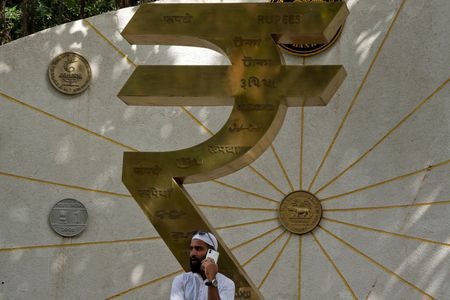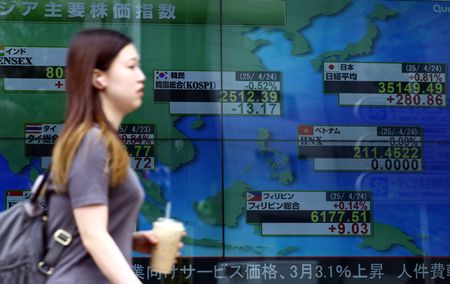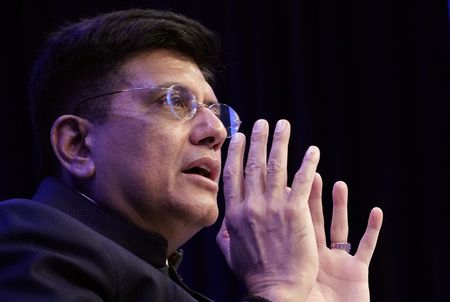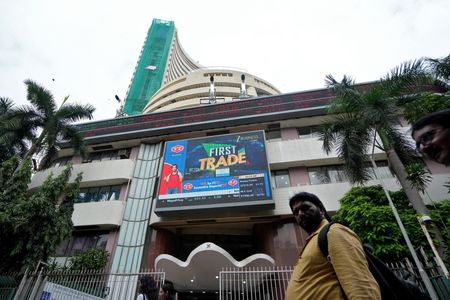By Nimesh Vora
MUMBAI (Reuters) -The Indian rupee hit a record low on Friday, slipping past the 88-per-dollar mark for the first time ever, as investors said the drag from punitive U.S. tariffs on Indian goods will hurt the country’s growth and external finances.
Washington imposed an additional 25% tariff on Indian goods this week, doubling the total duties faced by the South Asian nation to 50%.
The rupee dropped to 88.29 against the U.S. dollar, breaching its prior lifetime low of 87.95 hit in February. The currency rebounded partially to trade at 88.12 against the dollar at 2:10 p.m. IST following dollar sales by the central bank, traders said.
The rupee has fallen 3% in 2025 and is the worst performing currency in Asia this year. The Indian currency also fell to a record low against the Chinese yuan on Friday.
“Once the rupee hit 87.60, we saw a lot of demand from importers that were unhedged. They were all expecting RBI to step in, but it didn’t, so after the rupee crossed 88, it just kept triggering stop losses,” Anindya Banerjee, head of foreign exchange research at Kotak Securities said.
“89 is the next key level to watch.”
The U.S. tariffs are likely to shave off 60-80 basis points from India’s GDP growth if they stay in place for a year, economists have said, potentially adding pressure on an already slowing economy.
India’s central bank currently expects the economy to grow by 6.5% in the current financial year that ends on March 31.
Indian exports to the U.S. account for 2.2% of GDP but a sharp slowdown in labour-intensive industries like textiles and jewellery could lead to job losses and worsen the economic impact, economists have said.
The tariffs could also widen India’s trade deficit at a time when foreign portfolio flows have been weak, worsening the country’s balance of payments.
Foreign portfolio investors have sold $9.7 billion in Indian debt and equities so far this year.
A tariff-led drag on exports could add some incremental pressure to India’s trade balance, Hari Shyamsunder, vice president & senior institutional portfolio manager – emerging markets equity – India, at Franklin Templeton, said.
(Reporting by Nimesh Vora; Additional reporting by Vivek Kumar M in Bengaluru and Khushi Malhotra in Mumbai; Editing by Mrigank Dhaniwala)










